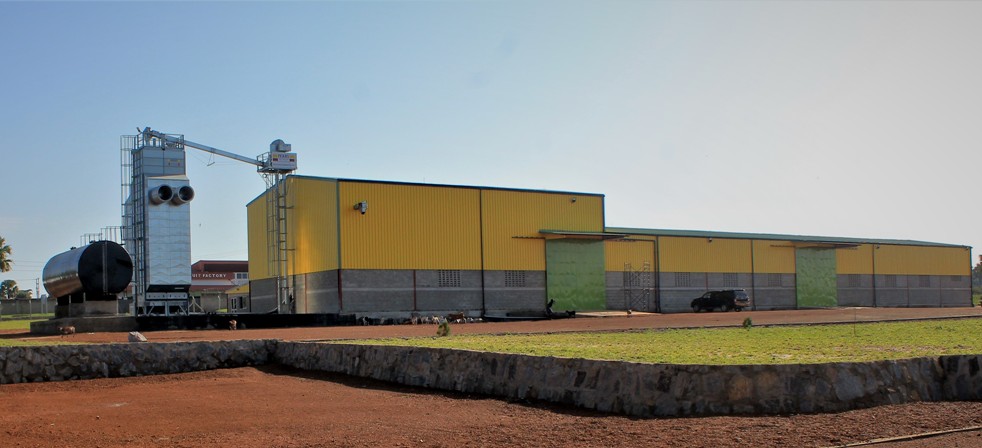Aflatoxin cleaning equipment due to be installed at Soroti plant
 PELA Commodities is installing Uganda’s first Aflatoxin removal machine (TOXI SCRUB) during the coming weeks.
PELA Commodities is installing Uganda’s first Aflatoxin removal machine (TOXI SCRUB) during the coming weeks.
Aflatoxin contamination which has been a contentious issue and has frequently caused Kenya to reject Ugandan maize exports may soon be a thing of the past following the planned installation of a new cleaning facility in Soroti, eastern Uganda. PELA Commodities is installing Uganda’s first Aflatoxin removal machine (TOXI SCRUB) during the coming weeks.
Aflatoxin is a naturally occurring toxin produced by the fungus Aspergillus flavus. The fungus can be recognized by a gray-green or yellow-green mold growing on corn kernels in the field or in storage.
PELA Commodities general manager, Isaiah Langa said, “Uganda’s grain handlers have had a long-standing aflatoxin problem, but this is a step in the right direction to help enhance our yields and output. It will turn harmful maize or grain that cannot be exported or sold to reputable processors into a high-value product. We have already trained our team members on aflatoxin testing and they’re ready to start operating the machine.”
The major cause of aflatoxins is poor post-harvest handling activities. According to FAO, Africa is reported to lose more than $670 million in export earnings due to the presence of aflatoxins in farm produce per year.
The machinery, which arrived in the country recently, was designed and supplied by Perry Engineering and is being installed by their team. The TOXI SCRUB reactor and generator are supplied byiGrain that will power the process of removing aflatoxins from high levels to 10ppb or less.
It features different treatment programs and can be adjusted to make the necessary treatment to bring the contamination well below allowed levels. The machine can also eliminate not only Mycotoxins, but also biologic activity such as bacteria, mites and insects. Aflatoxins are largely associated with commodities produced in the tropics and subtropics, such as cotton, peanuts, spices, pistachios, and maize.
Maize is Uganda’s most important cereal crop, which is grown on both small and large scales and traded locally and globally by farmers. The cereal provides opportunities for many Ugandans to participate in the value chain and the grain sub-sector is recognized as one of the most essential sectors for Uganda’s socio-economic transformation.
Perry Engineering are the designers and manufacturers of grain handling, cleaning, drying, and storage equipment and systems, small-scale flour mills, feed mills, and associated products.

 Brussels Airlines to announce Nairobi service
Brussels Airlines to announce Nairobi service
 SITA promises enhanced travel experience after Materna acquisition
SITA promises enhanced travel experience after Materna acquisition
 Saudia’s 105 aircraft order stretches A320neo lead over rival Max
Saudia’s 105 aircraft order stretches A320neo lead over rival Max
 Boeing refuses to pay hackers $200 million for stolen Data
Boeing refuses to pay hackers $200 million for stolen Data
 Uganda-Tanzania announce date for second joint business forum
Uganda-Tanzania announce date for second joint business forum
 Uganda Airlines leased A320 arrives in Entebbe
Uganda Airlines leased A320 arrives in Entebbe
